Hey People
December 1, 2012 - As most of you already know, I am currently on a one-month backpacking adventure through Egypt. Before I left, my aunt, whose husband is originally from Cairo told my mother that it was not safe to travel in Egypt because of the revolution and because the police are corrupt. My aunt is not alone in this belief. I looked online to see what other people had to say about travel in Egypt and discovered that a number of countries had published reports warning their citizens not to travel in Egypt.
Being a seasoned traveler and having worked in Afghanistan, I don’t always believe what I see on TV and read in the newspapers. I had a feeling things were being blown out of proportion and now that I have been here for two weeks I can tell you first hand that YES, it is SAFE to travel in Egypt.
December 1, 2012 - As most of you already know, I am currently on a one-month backpacking adventure through Egypt. Before I left, my aunt, whose husband is originally from Cairo told my mother that it was not safe to travel in Egypt because of the revolution and because the police are corrupt. My aunt is not alone in this belief. I looked online to see what other people had to say about travel in Egypt and discovered that a number of countries had published reports warning their citizens not to travel in Egypt.
Being a seasoned traveler and having worked in Afghanistan, I don’t always believe what I see on TV and read in the newspapers. I had a feeling things were being blown out of proportion and now that I have been here for two weeks I can tell you first hand that YES, it is SAFE to travel in Egypt.
Yes there is a revolution going on in this country. Here is a little background that I found on Wikipedia:
The revolution began on January 25th 2011 when protesters managed to overthrow of the regime of Egyptian President Hosni Mubarak. The revolution was not without violent clashes between security forces and protesters, with at least 846 people killed and 6,000 injured. The Egyptian protesters were focused on legal and political issues including police brutality, state of emergency laws,lack of free elections and freedom of speech, corruption, and economic issues including high unemployment, food price inflation and low wages. On 11 February 2011, Vice President Omar Suleimanannounced that Mubarak would be stepping down as president and turning power over to the Supreme Council of the Armed Forces and Mubarak resigned from office. On 2 June 2012, Hosni Mubarak was found guilty of complicity in the murders of the protestors and sentenced to life imprisonment. On 24 June, the State Election Commission announced that Islamist Mohammed Morsi had won the presidential election. On 30 June, Morsi was inaugurated as the 5th President of Egypt.
On 22 November 2012, Morsi issued a declaration purporting to protect the work of the constituent assembly drafting the new constitution from judicial interference; in effect, the declaration immunises his actions from any legal challenge. The decree states that it only applies until a new constitution is ratified. The declaration also requires a retrial of those accused in the Mubarak-era killings of protesters, who had been acquitted, and extends the mandate of the constituent assembly by two months. Additionally, the declaration authorizes Morsi to take any measures necessary to protect the revolution. Liberal and secular groups walked out of the constitutional constituent assembly because they believed that it would impose strict Islamic practices, while members of the Muslim Brotherhood supported Morsi.
The move was criticized by Mohamed ElBaradei who said Morsi had "usurped all state powers and appointed himself Egypt's new pharaoh. The move led to massive protests and violent action throughout Egypt, with protesters erecting tents in Tahrir Square, the site of the protests preceding the resignation of Hosni Mubarak. The protesters demanded a reversal of the declaration and the dissolution of the constituent assembly.
The revolution began on January 25th 2011 when protesters managed to overthrow of the regime of Egyptian President Hosni Mubarak. The revolution was not without violent clashes between security forces and protesters, with at least 846 people killed and 6,000 injured. The Egyptian protesters were focused on legal and political issues including police brutality, state of emergency laws,lack of free elections and freedom of speech, corruption, and economic issues including high unemployment, food price inflation and low wages. On 11 February 2011, Vice President Omar Suleimanannounced that Mubarak would be stepping down as president and turning power over to the Supreme Council of the Armed Forces and Mubarak resigned from office. On 2 June 2012, Hosni Mubarak was found guilty of complicity in the murders of the protestors and sentenced to life imprisonment. On 24 June, the State Election Commission announced that Islamist Mohammed Morsi had won the presidential election. On 30 June, Morsi was inaugurated as the 5th President of Egypt.
On 22 November 2012, Morsi issued a declaration purporting to protect the work of the constituent assembly drafting the new constitution from judicial interference; in effect, the declaration immunises his actions from any legal challenge. The decree states that it only applies until a new constitution is ratified. The declaration also requires a retrial of those accused in the Mubarak-era killings of protesters, who had been acquitted, and extends the mandate of the constituent assembly by two months. Additionally, the declaration authorizes Morsi to take any measures necessary to protect the revolution. Liberal and secular groups walked out of the constitutional constituent assembly because they believed that it would impose strict Islamic practices, while members of the Muslim Brotherhood supported Morsi.
The move was criticized by Mohamed ElBaradei who said Morsi had "usurped all state powers and appointed himself Egypt's new pharaoh. The move led to massive protests and violent action throughout Egypt, with protesters erecting tents in Tahrir Square, the site of the protests preceding the resignation of Hosni Mubarak. The protesters demanded a reversal of the declaration and the dissolution of the constituent assembly.
| Tourists have not been targeted during this revolution rather they are being welcomed to visit Egypt and protected by the Tourist Police as always. Yes it is possible that militants could target tourists and it is also possible that the world could end on December 12th 2012! The demonstrations are, for the most part, peaceful and taking place in Tahrir Square and in certain main squares in some of the other major cities. If you are not a fan of tear gas, I recommend you steer clear of these protest sites. Unfortunately the Egyptian Museum is located near Tahir Square so if you are really worried, save it for another visit, or check with the locals as to what day is best to visit when the protesters are in smaller numbers. The main attractions in Egypt are located far away from any protest sites. In my first 15 days here, I have visited the Pyramids of Giza, the Pyramids of Saqqara, and the Hanging Church, the family tomb of Mohammed Ali, the Library of Alexandria, Fort Qaitbey (which occupies the site of the former Alexandria lighthouse, one of the original Seven Wonders of the World) and the Western Desert. I saw no signs of any revolution in any of these areas (other than people watching the revolution on TV) and was greeted with open arms by the locals, many of whom rely on tourism as their main source of income. I have come across numerous policemen and have no problem with them; in fact one even helped me flag a taxi. |
| It hurts me to see Egypt’s once thriving tourism industry suffering as it is. Many hotels and businesses have closed down as a result and some of the qualified guides have to supplement their income with other jobs. However, people are hopeful that the tourists will return soon and things will be back to business as usual. If you have ever dreamed of visiting the land of the Pharaohs,now is definitely the time to do it! The prices of hotels have gone down as a result of the decrease in tourism and four-star hotels that once sold for $130 a night can be booked for as little as $30 a night. Desert tours that once had to be booked well in advance can now be booked the day before and attractions that once drew huge crowds have fewer people in them making it more enjoyable. So come to Egypt and help our Egyptian brothers and sisters in their bid for democracy by helping to support their economy. |

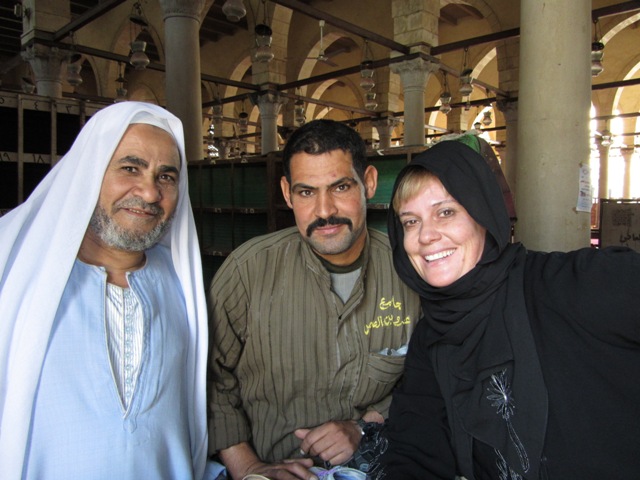
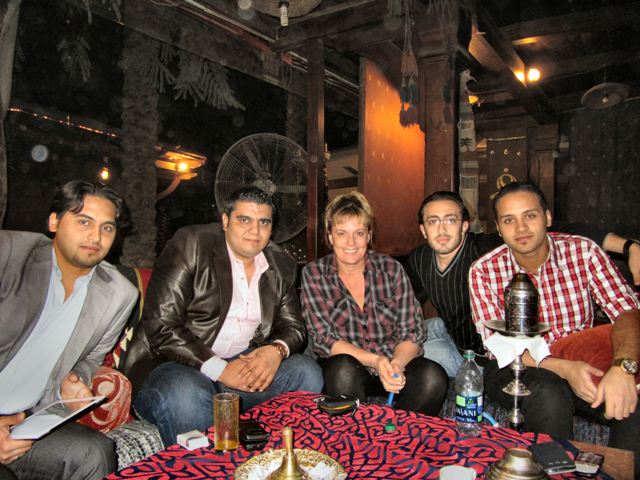
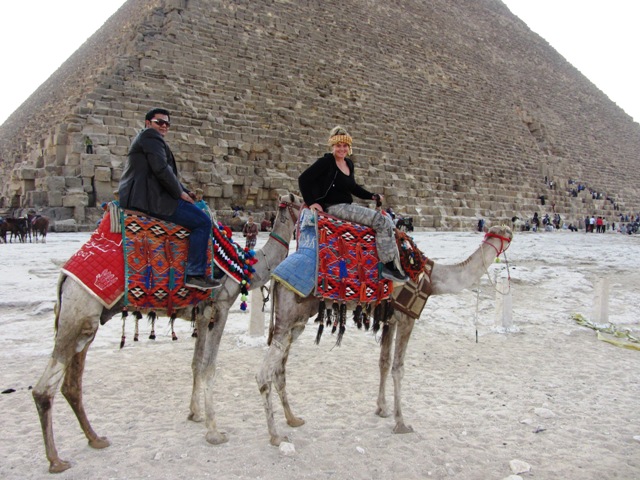
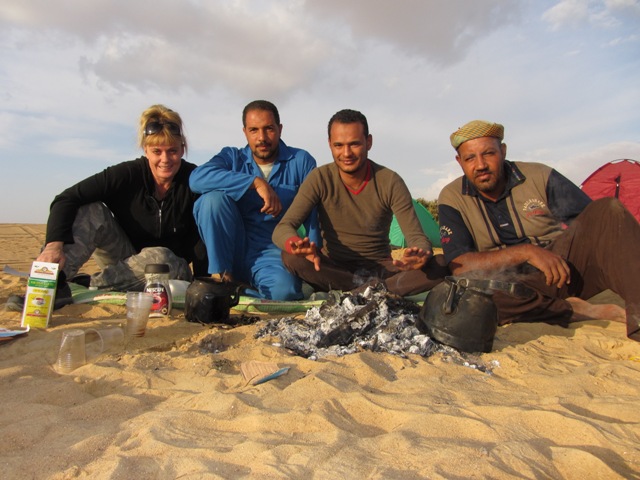
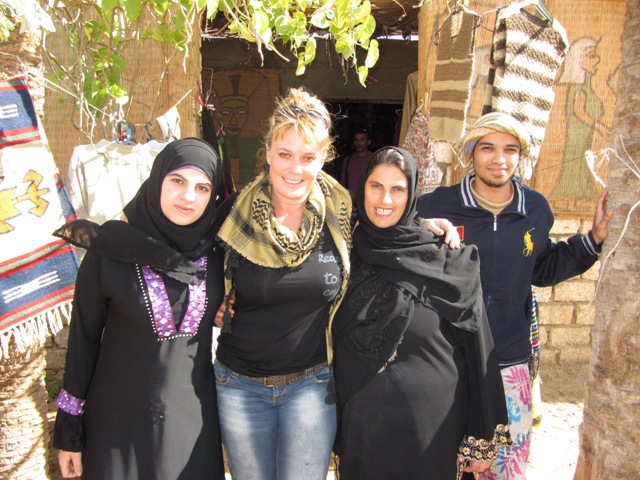
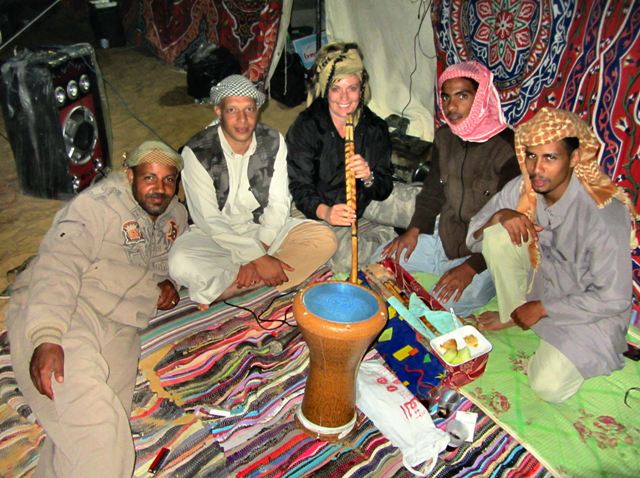
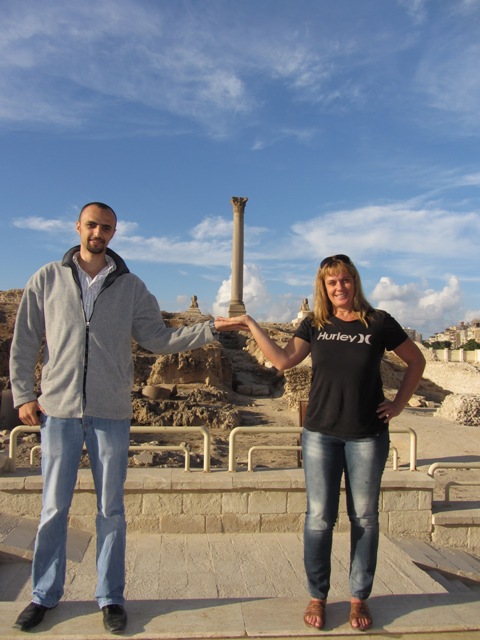
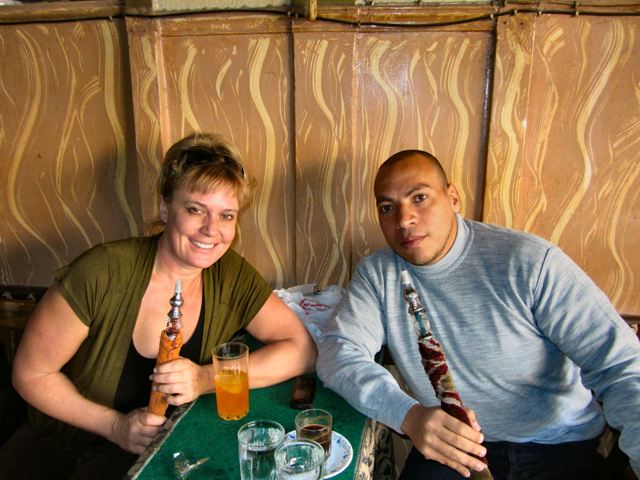
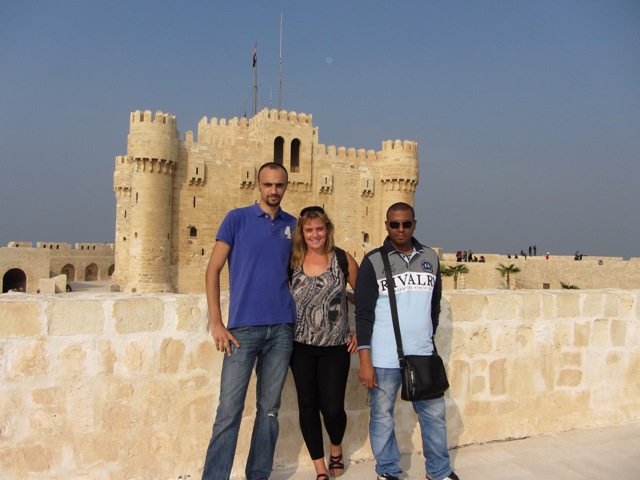
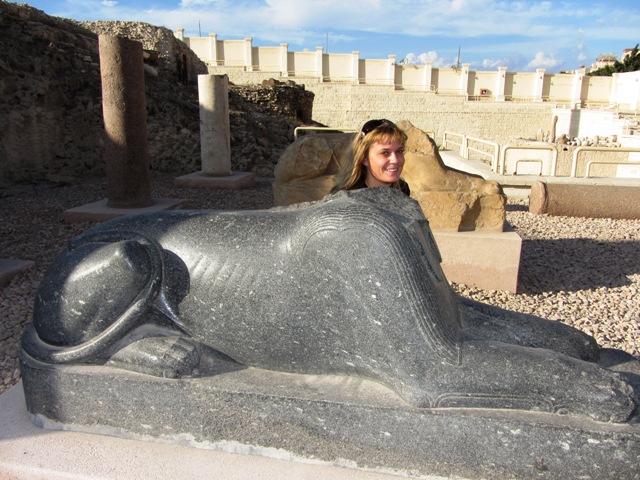
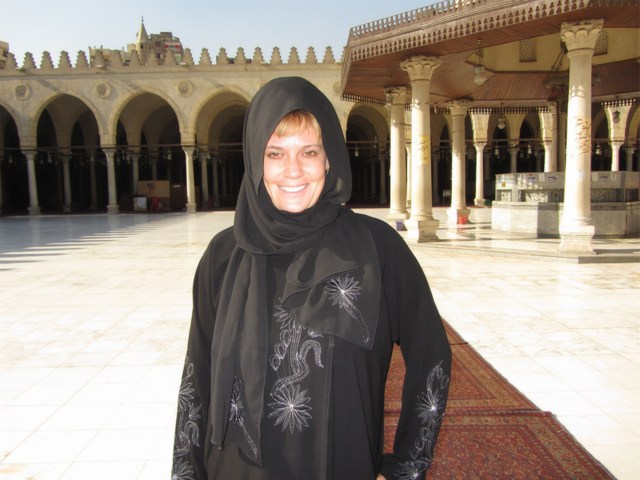
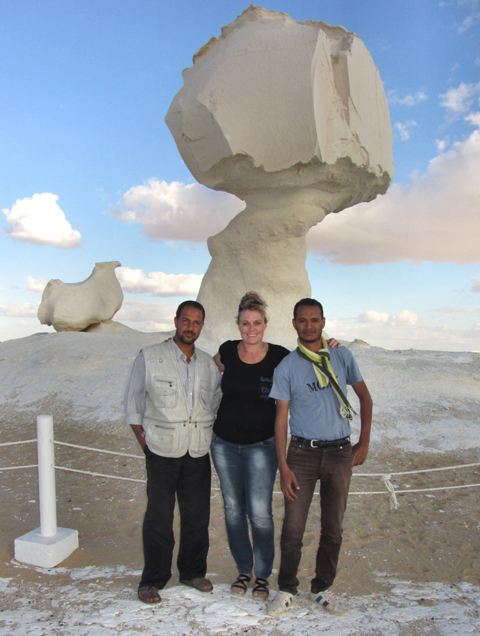
 RSS Feed
RSS Feed
